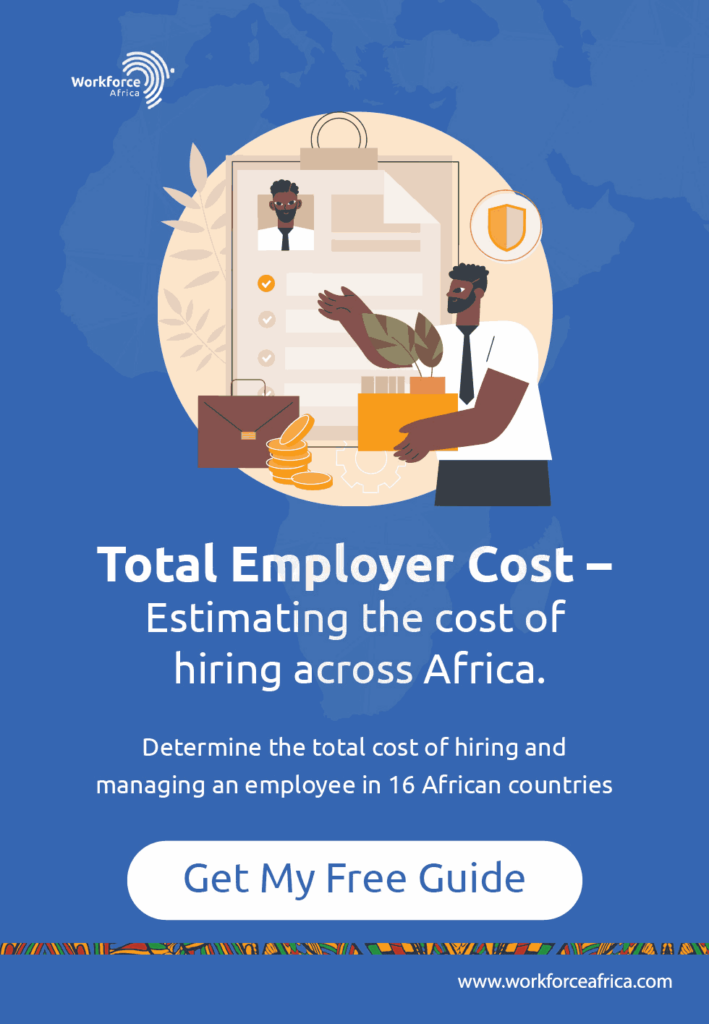

Navigating the challenges of global payroll is easy as long as you play by the peculiar rules of global payroll governing the countries in which you operate.
Employer-of-record service providers can help you navigate the landmines of global payroll successfully.
The famous maxim that whatever is worth doing is worth doing well must be considered when doing business.
By embracing a proactive stance towards payroll management, companies can compliantly navigate the complex landscape of global taxes and laws.
This shields them from hefty penalties and promotes a positive relationship with their international workforce.
Such an approach not only safeguards companies from potential legal and financial repercussions.
But also cultivates a harmonious working environment for employees from diverse backgrounds, thereby bolstering overall business operations.
Compliance with labour laws and regulations on payroll management is a fundamental requirement for any company.
Compliance with labour laws and regulations on payroll management is a fundamental requirement for any company.
However, when dealing with international employees, the issue of payroll and compliance takes on a heightened significance.
Each country has a unique standards for compensating employees, and the employer must uphold them.
This underscores the pivotal role of a compliant global payroll company in the smooth functioning of international business operations.
Global payroll compliance is the meticulous process of ensuring that an organisation accurately calculates and disburses employee salaries and wages.
This is done while strictly adhering to all relevant labour laws, tax regulations, and statutory requirements in each country or region where they have employees.
It's a complex and regulatory task that requires deep knowledge of local employment laws and regulations. Operating across multiple jurisdictions poses a significant challenge for companies.
They must navigate a complex web of varying payroll rules, tax rates, withholding requirements, and reporting obligations.
This underscores the need for a robust global payroll compliance strategy.
Global payroll compliance entails the following
Maintaining global payroll compliance is non-negotiable for organisations with an international workforce; it is essential.
Reasons why global payroll compliance is crucial
Legal Compliance
Failing to comply with local labour laws, tax regulations, and statutory requirements in different countries can result in severe legal consequences.
This includes hefty fines and penalties. Payroll compliance services ensures that the organisation operates within the legal framework of each region.
Mitigating Financial Risks
Non-compliance with payroll regulations can lead to significant financial risks, such as underpaying taxes, which can result in interest and penalties from tax authorities.
Proper global payroll compliance helps organisations avoid these costly mistakes and potential back taxes.
Protecting Company Reputation
Payroll errors or violations can be a big blow to a company's reputation, particularly in the eyes of employees and local authorities.
Global payroll compliance demonstrates an organisation's commitment to ethical business practices and respect for local laws, which can enhance its credibility and standing.
Maintaining Employee Satisfaction
For organisations that care about employee retention, ensuring accurate and timely payment of salaries, wages, and benefits is crucial.
Global payroll solutions help organisations meet employee obligations, fostering trust and positive employee relations.
Facilitating Expansion
For forward-thinking organisations expanding operations into new markets, global payroll compliance is a prerequisite for setting up a legal and compliant workforce.
Proper compliance practices enable smoother international growth and expansion.
Avoiding Disruptions
Payroll non-compliance can have legal implications that can cause disruptions and impede business operations.
International payroll helps organisations avoid these disruptions, ensuring continuity and minimising operational disruptions.
Data Privacy and Security
Payroll processes involve handling sensitive employee data, such as personal information and compensation details.
A global payroll system ensures this data is managed and protected under local data privacy and security regulations.
As a global employer, managing your global payroll can be challenging—no thanks to the peculiarity of managing a compliant global payroll.
To successfully navigate the challenges of payroll in Africa, it is crucial to leverage the services of an EOR. At the same time, you focus on the success of your organisation.
Let's take a look at some prevalent challenges in global payroll that can pose significant risks to an organisation's operations and compliance efforts
Each country has its own peculiar labour laws, tax regulations, and statutory requirements for payroll.
Keeping up with constantly evolving laws across multiple jurisdictions can be a significant challenge.
Operating in different countries often involves dealing with language barriers and diverse cultural norms.
Due to these barriers, interpreting and understanding local payroll regulations and employment laws can take time and effort.
Gathering accurate and up-to-date employee data, such as personal information, compensation details, and work hours, from various locations can be a complex task.
Ensuring data consistency and compliance with local data privacy laws adds to the challenge.
Currency exchange rate fluctuations can affect the accuracy of cross-border payroll calculations and remittances.
Managing multiple currencies and ensuring timely conversions can be a significant challenge.
Integrating payroll systems and processes across African countries can be complex, especially with disparate systems and data formats.
Standardising payroll processes and maintaining consistency across global operations can be a challenge.
Finding and retaining payroll experts with accurate and in-depth knowledge of local laws and regulations in different countries can hurt operations in the long run.
Training and managing a globally distributed payroll team is capital-intensive.
Complying with varying tax regulations, withholding requirements, and reporting obligations across multiple African countries can be complex and time-consuming.
Although ensuring accurate and timely filing of payroll tax returns and reports is crucial, managing the same in-house for teams scattered across various countries is even more daunting.
Considering all the challenges associated with global payroll compliance, you will agree that it is safer and more efficient for an EOR to manage your global payroll.
Managing the challenges above requires a well-structured global payroll strategy, robust processes, skilled personnel with global reach and local compliance. To ensure minimal risks across international operations.
Recommended Post: A Payroll Management Guide to Doing Business in Nigeria
With good planning, you can avoid payroll and compliance challenges as a global employer of labour.
One strategy is partnering with a reputable, experienced African payroll outsourcing provider.
One of the best ways to streamline your payroll and scale is by outsourcing your global payroll operations to a specialised EOR provider.
By leveraging an EOR, you can effectively mitigate compliance risks and ensure accurate, timely, and compliant payroll processing across all regions where you have employees.
Working with an employer of record (EoR) allows you to access local expertise on regional laws and requirements.
You also gain access to proven systems and payroll infrastructure built to handle your dispersed remote African team.
A global EoR takes complete control of payroll administration for your international employees, implementing strict, localised standards for managing data, making secure payments, and meeting deadlines.
Global payroll providers have expertise in navigating the complex web of labour laws, tax regulations, and statutory requirements in multiple jurisdictions.
They are current with the changing rules and can always ensure compliance.
These providers offer scalable solutions that adapt to your organisation's growth and changing needs.
Whether you are expanding into new markets or adjusting your workforce, they can seamlessly accommodate your payroll requirements.
Global payroll providers offer standardised and streamlined processes, integrating your existing systems to ensure consistency and efficiency across all locations.
Outsourcing payroll compliance to experts reduces the risks of non-compliance, penalties, and legal liabilities associated with payroll errors or violations.
The provider assumes responsibility for ensuring compliance, shielding you from potential risks.
Outsourcing payroll tasks is more cost-effective than maintaining an in-house payroll team with local expertise in multiple African countries.
Global payroll providers can leverage economies of scale and offer competitive service pricing.
These providers employ robust security measures and comply with data privacy regulations to protect sensitive employee data and mitigate the risks of data breaches or violations.
While outsourcing may require upfront investment, the long-term benefits of compliance, risk mitigation, and operational efficiency.
This makes it a good strategy for global employers seeking to avoid payroll compliance risks.
Suggested Post: How to Conduct a Global Payroll Audit in 8 Steps
When you work with an experienced EOR partner such as Workforce Africa, you can access a full suite of trusted, compliant global payroll services.
At Workforce Africa, we understand the importance of meeting legal standards in international markets. That's why we've mastered compliance in 30+ countries across Africa.
With 20 years of global reach and local compliance, we have helped some of the most exciting global labour employers handle their payroll administration, employee onboarding, and local employment taxes across Africa.
To enable them focus on managing, growing, and nurturing their teams.
If you’re curious how Workforce Africa can simplify Africa payroll compliance for your organisation, schedule a consultation today.